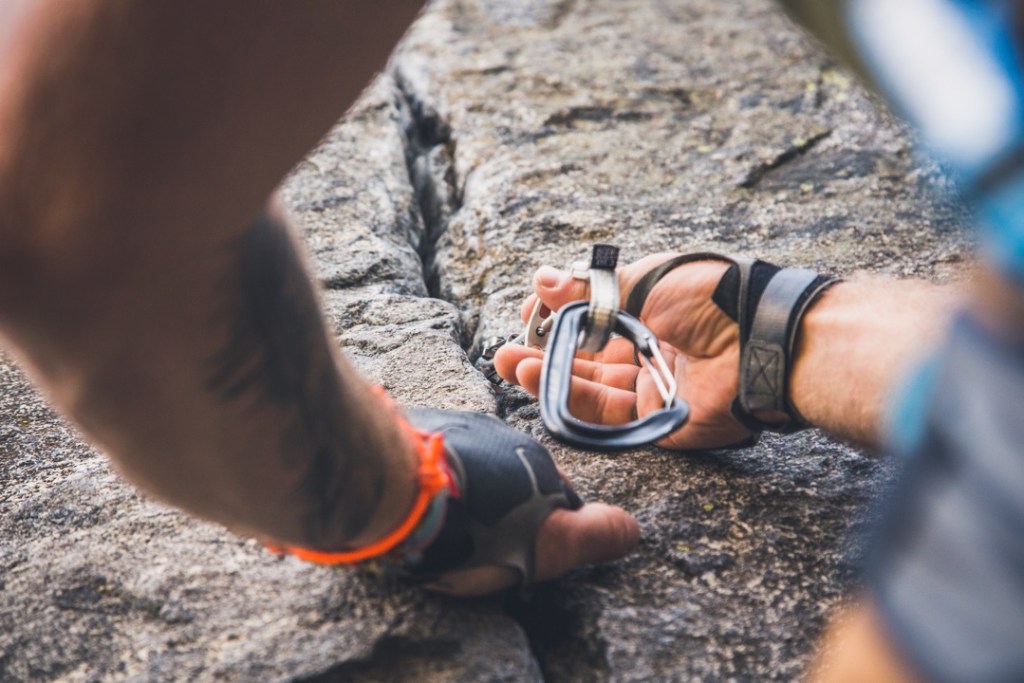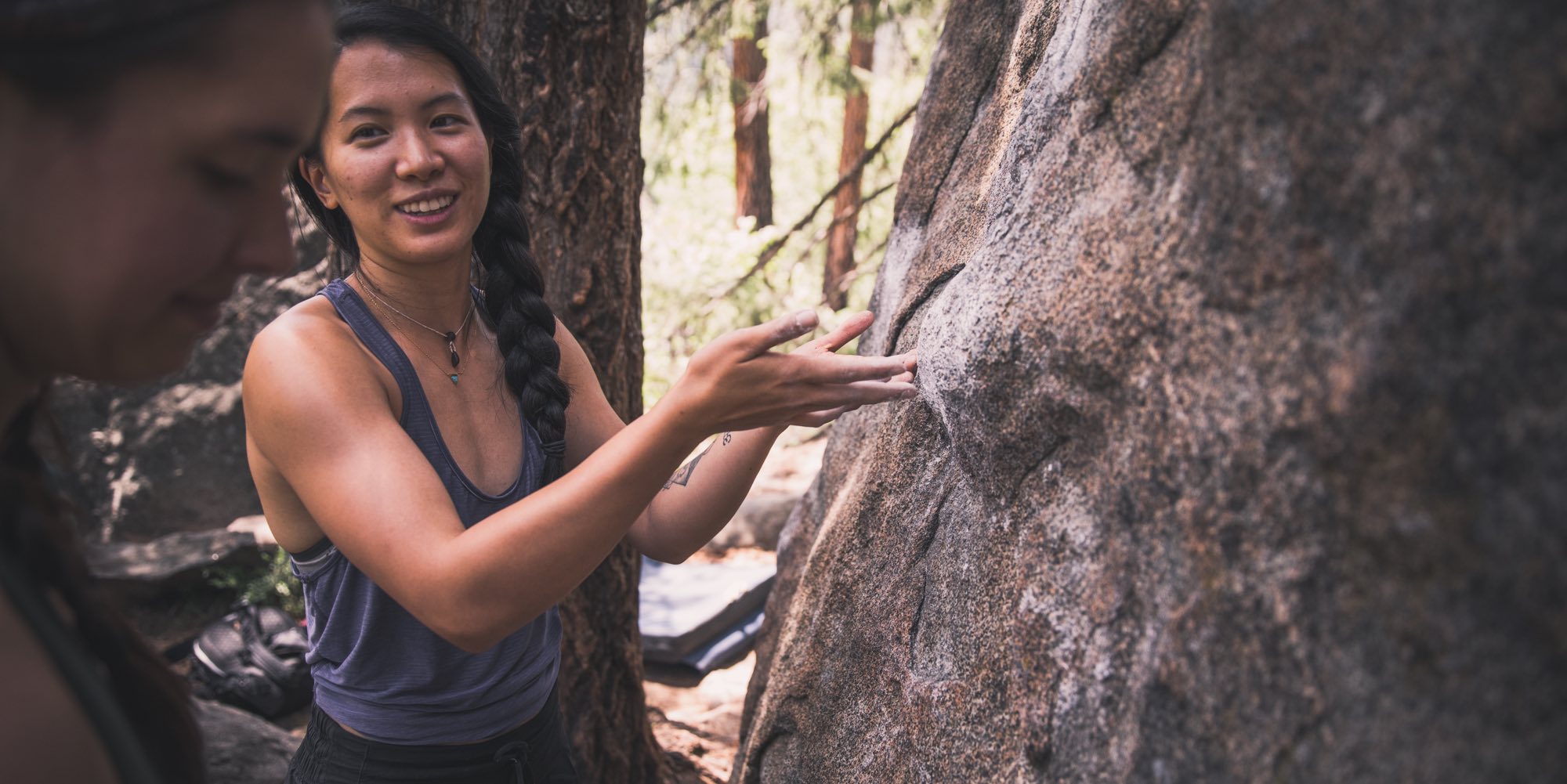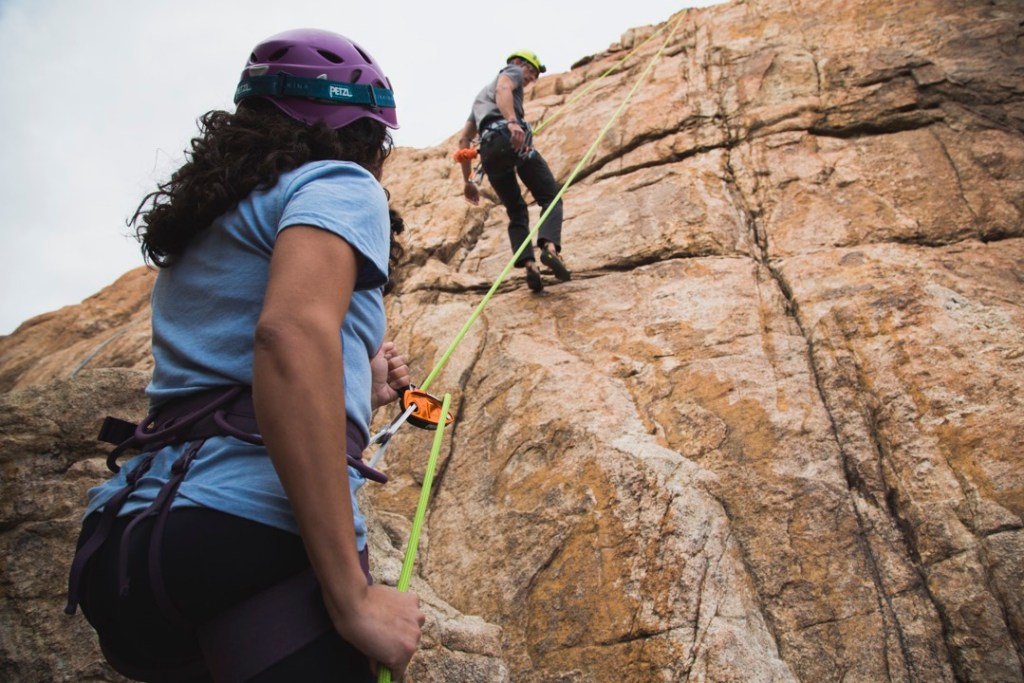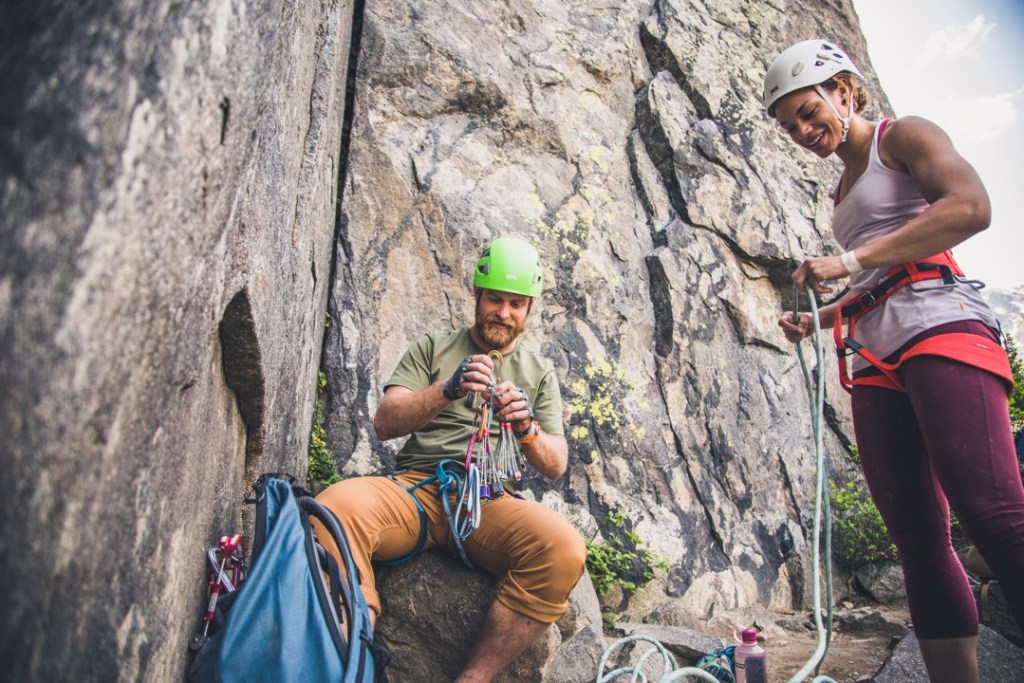If you’re excited to learn and progress as a rock climber, the first thing you might look for is a mentor. But finding a more experienced climber willing to take you under their wing might not be easy. As more people start climbing, the ratio of beginner climbers to experienced climbers grows, stretching the group of potential mentors increasingly thin.
We chatted with professional mountain guides and event organizers to find the best ways to get a climbing education and build connections with other climbers who can help you along the way.
Don’t be afraid to teach yourself.
“I think self-education should be a huge component to any climber’s education,” says IFMGA mountain guide Chris Simmons. Whether you’re a beginner learning to tie basic knots, or a more advanced climber looking for ways to improve your technique or expand your climbing ability, plenty of books and online videos and resources can help. For how-to, training and expert tips, here are a few places to start:
- Mountaineering: Freedom Of The Hills
- Rock Climbing: Mastering Basic Skills, by Topher Donahue and Craig Luebben
- REI Expert Advice: Rock Climbing
- Advanced Rock Climbing: Expert Skills and Techniques, by Topher Donahue
- Training For The New Alpinism: A Manual for the Climber as Athlete, by Steve House and Scott Johnston
- 1001 Climbing Tips, by Andy Kirkpatrick
- American Mountain Guides Association Tech Videos
Angela Hawse—who’s an IFMGA mountain guide, president of the American Mountain Guides Association board and co-owner of Chicks Climbing and Skiing—says reading historic perspectives on climbing can help round out your climbing education, too. She recommends looking up classics by influential climbers like Royal Robbins and Patagonia founder Yvon Chouinard.
Hire a professional.
Another way to learn crucial skills and broaden your climbing experience is to hire a guide. Even if you’re reading and watching instructional videos on your own, getting outside instruction from an expert can help eliminate bad habits, Hawse says. “The cost of hiring a certified guide may seem high, but the consequences are also high if you’re not in good hands.”
Whether you have a specific goal—like climbing a certain peak—or simply want to increase your experience level and build confidence, a guide can help you safely take that next step. They can also potentially become a future resource. “By hiring a guide, you automatically have a mentor,” says Norie Kizaki, an AMGA guide who works for the Colorado Mountain School in Boulder, Colorado. “I have developed great relationships with some clients, and I’m always happy to answer any questions. It doesn’t mean that I take all my clients as mentees. Not everyone is looking for one or needs one. But those I developed relationships with come to ask me questions about climbing and skiing. Sometimes I’m late to reply due to guiding and being a mom, but I always answer emails or call back eventually.”
But a guide can only teach you as much as you’re open to learning—as much as you’re paying attention to and taking in. To get the most out of your time with a hired guide, Kizaki says watching carefully what they do and asking questions is key.

Connect with your local community.
If you’re looking for more experienced climbers to partner with, being brave can go a long way, says Ron Funderburke, AMGA guide and director of education for the American Alpine Club. “Have some social courage,” he says. “If there was ever a community where taking a social risk was a safe bet, it’s the climbing community.”
Meetup groups and regional events like the American Alpine Club Craggin’ Classics make it easier to meet other climbers and find more experienced people to learn from. “A climber who wants to make a connection can easily find themselves immersed in a game, a conversation with a vendor, a food line, a beer line, bathroom line, forging a new relationship with another climber,” Funderburke says. Those interactions can build new friendships, climbing partnerships and even mentorship, he says.
To get the most of a meetup or event, Funderburke says, put in a little extra time and effort. If it’s a festival, consider going a day early or staying a day later. “Use your early arrival to volunteer, and use your late departure to indulge in some climbing at new area or with a new acquaintance,” he says. “Your experience will be more like an insider, because volunteers and locals are the insiders.”
Here are a few more ways to meet other local climbers:
- American Alpine Club Member Share
- Mountain Project’s Partner Finder
- Apps like Gociety, Meetup and local Facebook and Instagram groups
- Local climbing gym classes, events and bulletin boards
Take a course or clinic.
Taking a clinic can have twofold benefits: learning new skills and techniques, and also connecting you with other climbers, whom you might stay in touch with even after the event. Often, guides who teach clinics are also available for hire—and many times are happy to stay in touch and answer questions even after your course is finished. Regional organizations like The Mountaineers, the Mazamas, the Appalachian Mountain Club and Colorado Mountain Club, along with schools like the American Alpine Institute, offer courses for all levels of climbing. Your local climbing gym and REI store may also offer courses.
When it comes to learning and progressing as a climber, you get what you put in, whether it’s paying attention to a tiny technique tip from a hired guide, a big safety lesson in a clinic or a fitness tip from a climbing website. Every little bit can help, says Simmons—and even professionals should continually be learning. “My goal is to find the little pieces that can make incremental improvements and efficiencies that I know will add up to a big difference in a full day of climbing,” he says.


